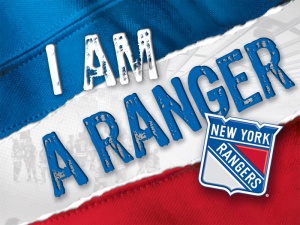My article “The Future of Mobile – without numbers” created a large reaction. I received a full inbox worth of cheers and jeers. For those who cheered, I say “thanks.”
 For those who jeered, I say, “Thank you very much!” I have always believed that when people challenge your thinking and your logic, you have the opportunity to learn and make your own arguments better. With this in mind, I have created a couple of broad categories of challenges from my critics. (If you have not read the original article you should first check it out with this link)
For those who jeered, I say, “Thank you very much!” I have always believed that when people challenge your thinking and your logic, you have the opportunity to learn and make your own arguments better. With this in mind, I have created a couple of broad categories of challenges from my critics. (If you have not read the original article you should first check it out with this link)
These areas are:
1-The sociological, technological and economic feasibility of my hypothesis that social networking and VoIP will fundamentally change the mobile industry
2-What should the Wireless Service Providers do to counter this threat?
Item 1:
To explain and expand on my logic more fully it is useful to look at some history.
What was the key invention that made the Internet a global phenomenon?
It was not TCP/IP, or browsers or even Google.
 The key invention was the Domain Name Server (DNS). DNS translates a domain name to an IP addresses. It is much easier to remember www.nytimes.com, instead of its IP address (170.149.173.130). DNS servers are continuously updated around the globe as Internet services switch IP addresses; add new destinations or new web services are created.
The key invention was the Domain Name Server (DNS). DNS translates a domain name to an IP addresses. It is much easier to remember www.nytimes.com, instead of its IP address (170.149.173.130). DNS servers are continuously updated around the globe as Internet services switch IP addresses; add new destinations or new web services are created.
DNS is also what makes email possible.
Prior to global DNS services the translation of a name to an IP address took place (if at all) in the equivalent of a local address book on your computer. You would update this local file with new IP address/Web name pairs as you discovered them, with the obvious problem that your local address book did not automatically update to track changes.
Does this sound familiar?
For nearly 100 years telephone services have been in the local address book mode. As a telephone subscriber, the implied requirement was for you to carry your own version of a local DNS in your pocket. 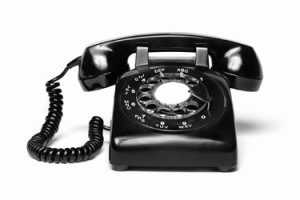 Your phone contacts would only update if you physically made a change to your address book.
Your phone contacts would only update if you physically made a change to your address book.
The phone company would issue all subscribers a regional, printed, version of DNS on a yearly basis, the big phone book.
This fundamental use case did not change until the introduction of phones with imbedded contact lists. With embedded contact lists you could scroll through a list and click to call. This feature eliminated the need to dial or punch all the digits yourself, but was still limited to your personal updates.
Prior to the ability to look up and retrieve phone numbers for people and businesses on the Internet, the only global DNS equivalent for telephone service was “411”, information service.
The use case for smartphones is the start of a fundamental change. With their larger screens and easy keyboard entry, you just type the name of the person you want to call and press send. The connection with the phone number is further eroded. The contact list still, however, must be maintained personally, just like our Grandparents did with their paper versions.
I can still remember the phone numbers from my friends in high school, but have to look up my kids’ numbers. The reason is that I never use my kids’ numbers; I just type their name.
The ability to take your phone number with you when you change providers (landline or wireless) was a big boost to the manual updating of address books. This was made necessary because of the lack of Global DNS in telephone service.
The emergence of large, ubiquitous social networks is the final missing puzzle piece that will finally alter this 100-year pattern and make phone calling similar to typing “nytimes”, instead of its IP number. These social networks provide several key elements.
They are a collection of your friends, family members and business associates. Your network(s) contain the majority of people you need, or want, to communicate with on a regular basis.
 Secondly, your networked friends should give you permission to view and have access to their actual phone numbers. This access will give you the equivalent of global DNS for your contact list! The updating of the phone numbers will no longer be your responsibility, but the responsibility of your friends. This is the same scenario as a Webmaster updating their web services IP address for DNS. Even if Voice over IP (VOIP) services do not emerge as a dominant mobile trend (I believe they will), then the social network aspects will be a major force unto themselves.
Secondly, your networked friends should give you permission to view and have access to their actual phone numbers. This access will give you the equivalent of global DNS for your contact list! The updating of the phone numbers will no longer be your responsibility, but the responsibility of your friends. This is the same scenario as a Webmaster updating their web services IP address for DNS. Even if Voice over IP (VOIP) services do not emerge as a dominant mobile trend (I believe they will), then the social network aspects will be a major force unto themselves.
So, at least to this point the logic is that Social Networks = Global DNS.
The last aspect of social networks is that they can easily provide an “always connected” status. This is the way instant messaging services (AOL, MSN, Yahoo, Skype) work today. This always-connected feature creates a direct IP path between any two (or more) members. If you have a direct IP path, you can easily create voice and video communications services.
The combination of social networks providing DNS-like service and IP connectivity is the core of the technological argument. The fact that the Internet has trained a large segment of the world to access sites and services by name, instead of by IP number is my proof point that there should not be a sociological issue with my scenario.
The economics of this scenario are more difficult to predict. I agree with those who said that the social networks and VOIP providers such as Skype would not run a global communications network without significant revenue and profit. The issue to consider is: Have the economics of providing a significant portion of this service forever altered in a significant manner?
VOIP service for home or business is significantly less expensive for the consumer than a direct-wired solution using 100-year-old twisted pair telephone technology. The ease of provisioning and maintenance, and the lower cost of transmission and billing, has changed the economics of landline services. It is less expensive to transmit and manage a very high bandwidth data path using Internet technologies, than to maintain individual transmission paths.
Why not the same for mobile?
Item 2: What should the Wireless Carriers do?
If I were the CEO of a major service provider I would execute the following strategy:
 Recognizing the importance of the trends that I discussed, the game that is now being played puts this mobile carrier at a structural disadvantage. If you think you are going to lose at the game that is being played, you change the game.
Recognizing the importance of the trends that I discussed, the game that is now being played puts this mobile carrier at a structural disadvantage. If you think you are going to lose at the game that is being played, you change the game.
The Carriers should obtain their own DNS service for their subscribers that updates continuously and allows for one click friend calling. This service should be a collection of the key social networks.
The Carriers should Interface/partner with Facebook, LinkedIn, etc and create a superset DNS of their subscribers’ contacts. Then they should build the social networking application(s) directly on the phones to permit IM, voice, and video communications. The existing mobile numbers can be used as the equivalent IP addressing scheme. The integration with the social networks will also permit contextual communications as the subscriber has access to their friends profile and status.
The strategy of partnering with the social networks for calling DNS functionality and contextual communications would create tremendous value.
The marketing possibilities for a Wireless Carrier with this strategy are huge.
If this strategy was implemented by just one carrier (Verizon for example) then they could market to your friends list to switch and get In-Calling rates (free) when they call each other. If 98% of your calls were within your social networking contacts, then it would make sense for that group to be on a single carrier.
The Carriers have tried viral marketing in the past with In-Calling and T-mobiles Fav-5 program. What I am suggesting would be many orders of magnitude more impactful. The first carrier that figures this out and executes will steal many of their competitor’s subscribers and really change the game.
The last issue for the Carrier strategy section is to counter the VOIP threat.
My strategy would be to embrace and profit from it. There are two obvious moves to capitalize on mobile VOIP. First, follow the strategy of the landline providers by creating your own VOIP mobile service that utilizes your connections into the social networks. You can have a flat monthly fee for VOIP calls.
Secondly, you can also provide a “bring your own VOIP” service plan. The Carrier would charge a lower monthly fixed fee that would reflect their lower costs in servicing these 3rd party subscribers.

Over the past five years the bulk of new mobile service investment has been on mobile data applications. Mobile voice services have not evolved beyond the basic voice call, callerID, voicemail stage. This is the opportunity to merge the data application investments directly with the core voice service.
The real issue for the Wireless Carriers will be in the recognition of this threat and the real opportunity that this fundamental disruption in the market it creates for a first mover to capitalize on the changes and redefine how people communicate.
I hope I have addressed many of the Jeers that I got last week. I welcome your comments on these expanded explanations and logic!

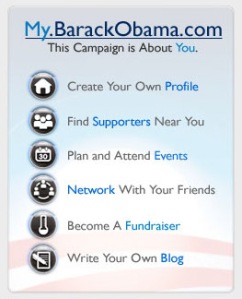 My angle is simple and parallels the major technological force that is reshaping our society, Web2.0.
My angle is simple and parallels the major technological force that is reshaping our society, Web2.0.
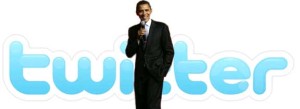
 er.
er.
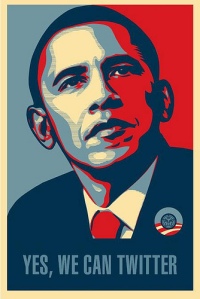 First, Twitter should recover all trade names for companies that are owned by individuals who are speculators and not official company officials. (At least Mickey got her payment!) This move would signal that Twitter is serious about the business use of their network. Any company that wants to do business on Twitter and capitalize from their valuable network should have to pay a direct fixed monthly fee to Twitter. In addition, a variable monthly fee can be gained based on number of Tweets and followers. These businesses would pay for access to millions of subscribers, just like advertisers pay for television ads.
First, Twitter should recover all trade names for companies that are owned by individuals who are speculators and not official company officials. (At least Mickey got her payment!) This move would signal that Twitter is serious about the business use of their network. Any company that wants to do business on Twitter and capitalize from their valuable network should have to pay a direct fixed monthly fee to Twitter. In addition, a variable monthly fee can be gained based on number of Tweets and followers. These businesses would pay for access to millions of subscribers, just like advertisers pay for television ads.

